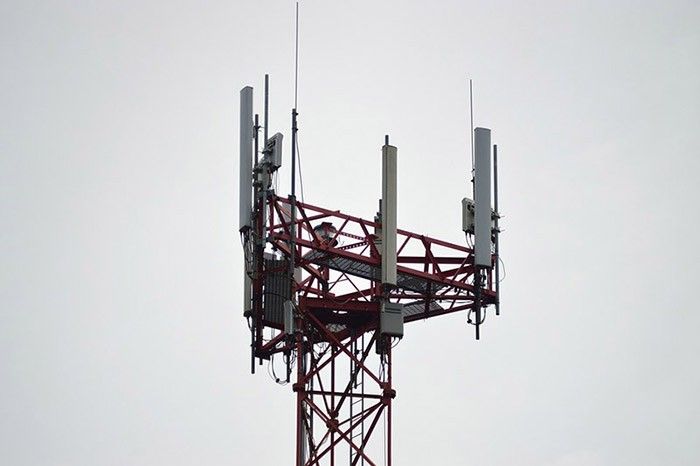Duterte’s preferential treatment for 3rd telco justified — lawmaker

MANILA, Philippines — An opposition lawmaker yesterday said President Duterte’s preferential treatment for the country’s third telecommunications player is not only a welcome development but “absolutely justified.”
“Public interest dictates the preferential treatment. The state, in going out of its way to accommodate the third player, is in fact merely fulfilling its duty to foster stronger and freer market competition,” Makati City Rep. Luis Jose Angel Campos Jr. said.
“We have to enable the new entrant to quickly roll out its network for the benefit of consumers, who for years have had no choice but to endure the inadequate and costly internet services being supplied by the two players,” he added.
Campos said the decision to give the country’s third telecommunications player the best possible preferential treatment is long overdue since it will “give Filipinos access to faster and cheaper internet connection speeds.”
Malacañang has ordered all concerned agencies – from the National Telecommunications Commission down to local governments – to expedite the grant of licenses and permits needed by the new entrant.
Without Duterte’s directive, Campos said the third player would face numerous hurdles, including potential delays in securing licenses and regulatory approvals to form the new telecommunications company.
All told, the new entrant may have to spend up to P125 billion over the next three years to be in a position to effectively compete with telco giants PLDT Inc. and Globe Telecom Inc., according to market analysts.
“Having real competition before the President’s term ends in 2022, is definitely better than having no foreseeable competition at all,” Campos said.
He played down the new player’s potentially foreign character, widely believed to involve a Chinese entity.
Both PLDT and Globe are substantially, or up to 40 percent, owned by foreigners, he said.
Trojan horse
The leader of the opposition bloc in the House of Representatives pointed out the possibility of China invading the country’s telecommunications industry, serving notice it will definitely be a matter of national security.
“Giving China access to our communications infrastructure is a serious threat to national security,” House Minority Leader Danilo Suarez warned.
He citied as primary reason the country’s long-time maritime row with Beijing over the South China Sea.
In their weekly news briefing, the Quezon lawmaker highlighted the fact that no less than Washington “banned” two Chinese giant telco firms – Huawei and ZTE – from bidding on US government contracts.
“This is because the Americans’ House Intelligence Committee reported that these were a national security threat due to possible espionage,” he said.
In fact, a bill in the US Congress “bans agencies from dealing with contractors that are using Huawei and ZTE technologies.”
“In context, while it is an attractive proposition to have a new player in an industry that is a continuing disappointment to the Filipino people, this to us comes at too high a price. The administration should not rush such a decision,” Suarez maintained.
This does not mean to say, however, that Suarez is fully contented with the services provided by the country’s duopoly – PLDT and Globe.
Suarez said “subscribers continue to bewail the lackluster performance of the companies.”
“While we agree that telecommunications and connectivity are serious problems in our country, it behooves us to scrutinize the China deal. Is China Telecom a Trojan horse?” the opposition lawmaker asked.
For one, Suarez pointed out that it is public knowledge that “China owns 40 percent of the NGCP (National Grid Corp. of the Philippines) our country’s power distributor.”
Another is the fact that China “ignored The Hague’s ruling recognizing our exclusive sovereign rights over the West Philippines Sea.”
Suarez proposed that the House committee on national defense and security along with other concerned committees “look into this matter closely.”
“Let’s see the big picture here. This involves our country’s territory, power, and now, possibly telecommunications,” Suarez said.
“Interested players from countries where we have no diplomatic incidents should be given a fair chance to forward their offers,” he said.
Suarez also reminded the national government as well as the general public about Beijing’s military structures in the artificial islands they built in the disputed waters where the Philippines, Vietnam and other Asian countries have overlapping claims.
“There were news reports detailing strong China military presence in our Kagitingan Reef, consisting of soldiers by the hundreds, an active runway, and even a rocket launcher,” Suarez said.
- Latest
- Trending




























